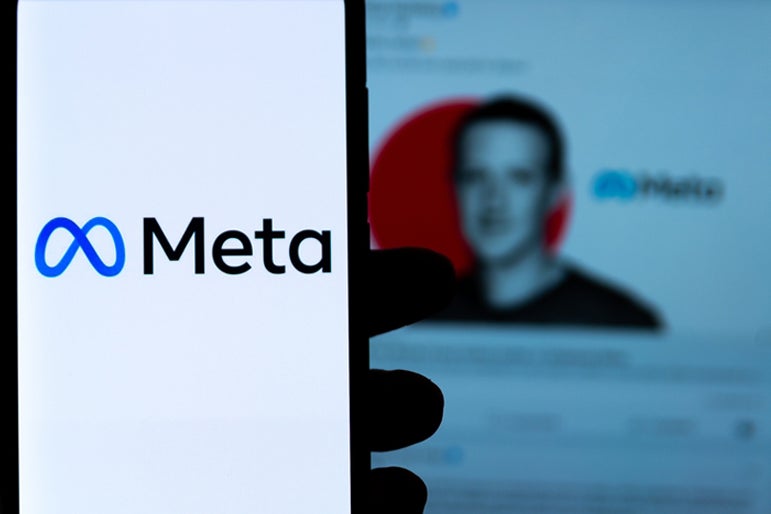Unlocking the Future: Mark Zuckerberg Unveils Meta’s Revolutionary Llama 4 AI Model
In a groundbreaking announcement, Mark Zuckerberg has revealed that Meta’s latest AI model, Llama 4, will incorporate advanced ‘agentic capabilities.’ This significant leap forward in artificial intelligence technology could pave the way for unprecedented applications across various sectors, solidifying Llama 4’s position as one of the most widely adopted AI systems in the tech landscape.
Understanding Meta’s Llama Series
The Llama series, short for Large Language Model Meta AI, has been at the forefront of AI development, showcasing Meta’s commitment to innovation. Following the previous iterations, Llama 4 represents a major enhancement in terms of capability and functionality. The integration of agentic capabilities into this new model is particularly noteworthy, as it allows the AI to perform tasks with a level of autonomy and decision-making that was previously unattainable.
What are Agentic Capabilities?
Agentic capabilities refer to the ability of an AI model to act independently, make decisions, and learn from experiences in a way that mimics human behavior. This advancement not only enhances the model’s performance but also broadens its potential applications. Here are some key characteristics of agentic capabilities:
- Autonomous Decision Making: Llama 4 can analyze data and make informed decisions without constant human intervention.
- Learning from Interaction: The model evolves by learning from its interactions, allowing it to improve over time.
- Contextual Understanding: Llama 4 can comprehend and respond appropriately to different contexts, making it more effective in diverse scenarios.
Potential Applications of Llama 4
With the introduction of agentic capabilities, Llama 4 is set to revolutionize several sectors. Here are some potential applications:
- Customer Service: AI-driven chatbots and virtual assistants can handle customer inquiries more effectively, providing personalized responses and solutions.
- Healthcare: Llama 4 can assist in diagnosing medical conditions by analyzing patient data and suggesting treatment plans based on historical outcomes.
- Finance: In the financial sector, Llama 4 can analyze market trends and make predictions, aiding in investment decisions.
- Education: Personalized learning experiences can be created using Llama 4, adapting to individual student needs and learning styles.
Meta’s Vision for the Future
Mark Zuckerberg has emphasized that the launch of Llama 4 aligns with Meta’s broader vision of creating a more connected and intelligent world. By empowering AI models with agentic capabilities, Meta aims to enhance user experience and drive innovation across various industries. The company’s commitment to responsible AI development ensures that these technologies will be developed with ethical considerations in mind, focusing on transparency and accountability.
Challenges and Considerations
While the advancements presented by Llama 4 are exciting, they also bring a host of challenges and considerations that need to be addressed:
- Ethical Concerns: As AI systems become more autonomous, questions regarding their accountability and decision-making processes arise. Ensuring ethical AI use is paramount.
- Data Privacy: The ability of Llama 4 to learn and adapt raises concerns about data privacy and security. Striking a balance between functionality and user privacy will be crucial.
- Job Displacement: The integration of advanced AI in various job sectors may lead to concerns about job displacement. Preparing the workforce for this transition is essential.
How Llama 4 Compares to Other AI Models
In the competitive landscape of AI, Llama 4 stands out due to its unique features and capabilities. Here’s how it compares to other prominent AI models:
- Scalability: Llama 4 is designed to be scalable, meaning it can handle larger datasets and more complex tasks than many existing models.
- Integration: The model’s ability to integrate seamlessly with existing systems makes it an attractive option for businesses looking to enhance their AI capabilities.
- Performance: With its agentic capabilities, Llama 4 promises improved performance in tasks that require independent decision-making, setting it apart from traditional models.
Future Prospects for Llama 4
The unveiling of Llama 4 marks a pivotal moment in the evolution of artificial intelligence. As organizations begin to explore the potential of this revolutionary model, several future prospects emerge:
- Increased Adoption: With its robust capabilities, Llama 4 is likely to see widespread adoption across various industries, from retail to healthcare.
- Continuous Improvement: As AI technology progresses, Llama 4 will likely undergo continuous enhancements, further expanding its applications and effectiveness.
- Collaborative AI: The potential for Llama 4 to work collaboratively with humans opens new possibilities for innovation and creativity in problem-solving.
Conclusion
Mark Zuckerberg’s announcement of Meta’s Llama 4 AI model heralds a new era in artificial intelligence, characterized by the integration of agentic capabilities. As businesses and individuals begin to understand the transformative potential of this groundbreaking model, the future of AI looks more promising than ever. The responsible development and deployment of Llama 4 will undoubtedly shape the tech landscape for years to come, unlocking new possibilities and applications that can improve lives and streamline processes in ways we are only beginning to imagine.
See more Future Tech Daily

